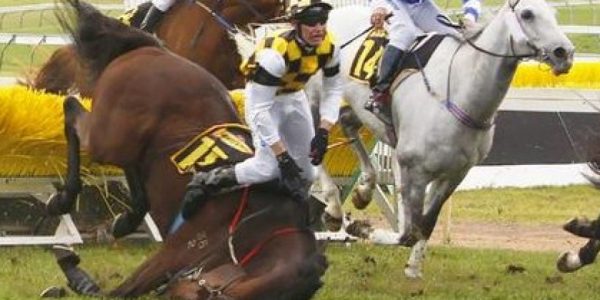It’s race day. Young, beautiful horses are paraded about. Crowds are dressed up like minor royalty, and the champagne is flowing. It’s a day of eveningwear in the morning and drinks before noon, high bets and high spirits. They say that fortunes can be won and lost on days like this. But so can lives.
Have you ever considered what is really being wagered at the races?
1. Thousands of horses bred for racing are considered ‘wastage’
Each year in Australia, thousands of horses are bred in the relentless search for ‘winners’ – up to half of these young horses will never see the track. And of those who do make it to the track, not every single one of them can be a ‘place-getter’ and achieve ‘success’ for their owner.
‘Wastage’ is the term used by the industry to describe these horses who aren’t ‘up to scratch’ – and their fate is grim. Thousands of thoroughbreds are sold at auctions each year for a few hundred dollars, only to be ferried away and ‘processed’ into ‘pet meat’ – horses like Nature’s Child who was still listed on the website of Racing Victoria as ‘spelling’ (ie. resting) when she was brutally killed at a Victorian knackery. The investigation footage, captured by the Coalition for the Protection of Racehorse, can be found here – content warning: most viewers are likely to find the investigation video highly distressing).










